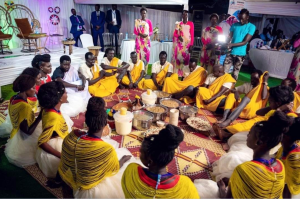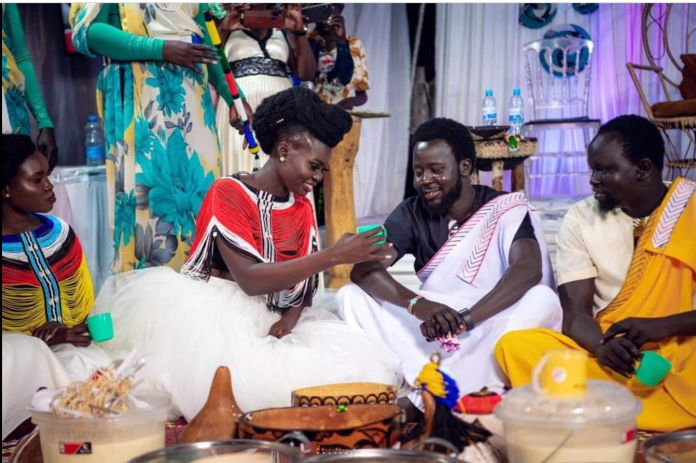The complex tradition within the Dinka community of South Sudan was a hot topic on Quora recently.
Known as Anyuuc, the word simply means “generous welcoming” in the Dinka language, and is a post-marital period lasting typically four years, where the wife is exempt from domestic chores like cooking and cleaning.
According to online sources, including the AfricaFactsZone on X [formerly Twitter], while the unusual “honeymoon” lasts, the bride dedicates herself to:
Rest and recovery: After the physically and emotionally demanding wedding celebrations, Anyuuc allows the bride to rest and reenergize.
Orientation and adaptation: The new wife can integrate into her husband’s family and community, learn household routines, and adjust to cultural expectations.
Building relationships: She forms strong bonds with her husband’s family and relatives, laying the foundation for a harmonious future.
Learning homestead values: She acquires knowledge about her husband’s livelihood, traditions, and cultural practices.
Sudan Tribune warns that it is important to note that cultural practices can vary widely, and they are deeply rooted in the traditions and beliefs of a particular community.
“In the case of the Dinka people, the practice of Anyuuc reflects cultural norms related to marriage and the integration of a new member into the family,” it says.

Benefits and criticisms
While Anyuuc appears to offer undeniable benefits like fostering rest and cultural learning for the new bride, it also raises concerns about possible violation of human rights.
According to Tales of Africa, such concerns focus on:
Gender inequality: Some argue that by exempting the wife from duties, it reinforces traditional gender roles and perpetuates female domestic burdens later.
Power dynamics: They fear that the husband’s family might exert undue control over the wife during this period, impacting her agency and decision-making.
Economic dependence: They are of the view that, without contributing to domestic labor, the wife might become financially dependent on her husband and his family.

Cultural context and evolution
According to Tales of Africa, it is crucial to understand Anyuuc within the Dinka cultural context:
Cattle-based society: Historically, women’s primary role was childbearing and managing the homestead, while men focused on cattle herding and warfare.
Respect for elders: Obeying and learning from the husband’s family have been a cultural norm for generations.
Evolution and adaptation: Modernization and women’s education are leading to gradual changes in traditional practices, with some families opting for shorter or modified versions of Anyuuc.
Conclusion
Critics agree that Anyuuc is a complex tradition with both positive and negative aspects.
“While it offers benefits like rest and cultural learning, it’s important to acknowledge potential issues like gender inequality and adapt or modify the practice for greater gender equality and individual agency within a changing social landscape,” scholars say.
They add that cultural practices are often multifaceted and evolve over time, requiring careful consideration of historical context, diverse perspectives, and potential implications.


